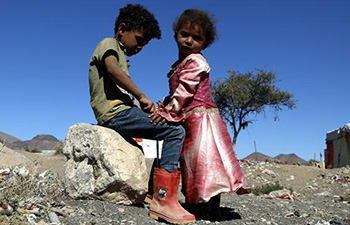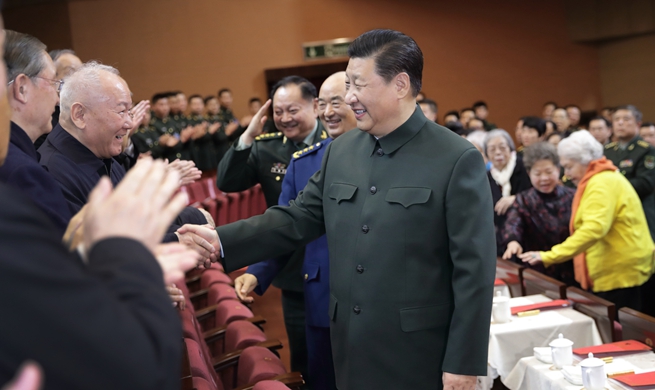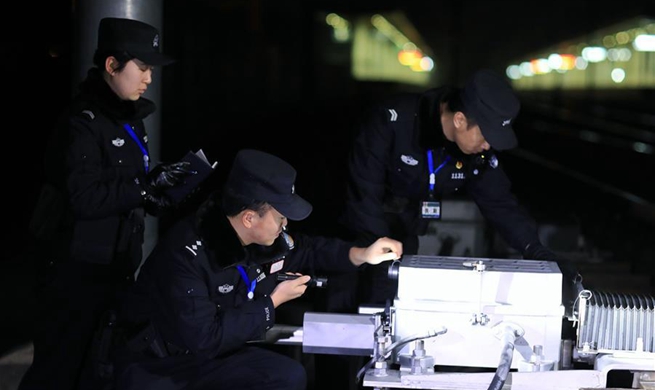ROME, Jan. 23 (Xinhua) -- Estimates for Italy's economic growth continue to slip below official government estimates, but analysts said that even if the trend continues, political consequences are still many months away.
In the latest news, the International Monetary Fund (IMF) this week lowered its official growth estimate for the Italian economy to 0.6 percent, down from a previous prediction of 1.0-percent growth. The multilateral financial institution also issued a warning that if tensions over deficit and debt levels that started last year continue, it would hurt the country's beleaguered banking system and industrial output while increasing the government's borrowing costs.
The IMF is not alone in its critical look at Italy's economic prospects. In recent weeks, the Organization for Economic Cooperation and Development, Italy's National Statistics Institute, ratings agency Standard & Poor's, the European Commission, and the Bank of Italy have all reduced their prognostications for Italian economic growth to between 0.5 percent and 0.8 percent.
Some other organizations and economists are even more pessimistic, predicting the economy will fail to grow at all this year, or that it could even contract -- something that has not happened in Italy since 2013.
At least so far this year, the Italian government headed by Prime Minister Giuseppe Conte is more focused on the issue of migrant arrivals, a high-profile diplomatic show with France, and the upcoming European Parliament elections than on economic growth.
"The government is focused on internal politics instead of the economy," Stefano Silvestri, a former president of the Instituto Affari Internazionale (Institute for International Affairs) and a consultant for the presidency of the Council for European Affairs, told Xinhua. "These issues they are focusing on, like the problems with France, are overblown."
Daniela Giannetti, a political scientist with the University of Bologna, agreed.
"At the moment, all the government's efforts are focused on maintaining public support and doing well in the European elections," Giannetti said in an interview. "Everything else is on hold until those elections."
The elections are scheduled for May. Economists and other analysts have told Xinhua that if the government continues to over-spend in the weeks leading up to the elections and if any reform plans are delayed until after the vote, growth prospects would almost certainly erode further.
If that happens, it is not clear what the political consequences will be for the euro-skeptic League and the anti-establishment Five Star Movement -- the two parties supporting the Conte government.
The elections in May could realign the balance of power between the parties -- the Five-Star Movement was the biggest vote getter in national elections held last year, though polls show the League now has the broadest support nationally. If the economy sputters in the months following the May vote, the next trial will be the end-of-the-year negotiations for the country's 2020 budget.
Deficit estimates for the 2019 budget are based on gross domestic product growth of 1.0 percent. If growth falls far short of that, a could-be case, then talks over the 2020 budget would become much more challenging.













